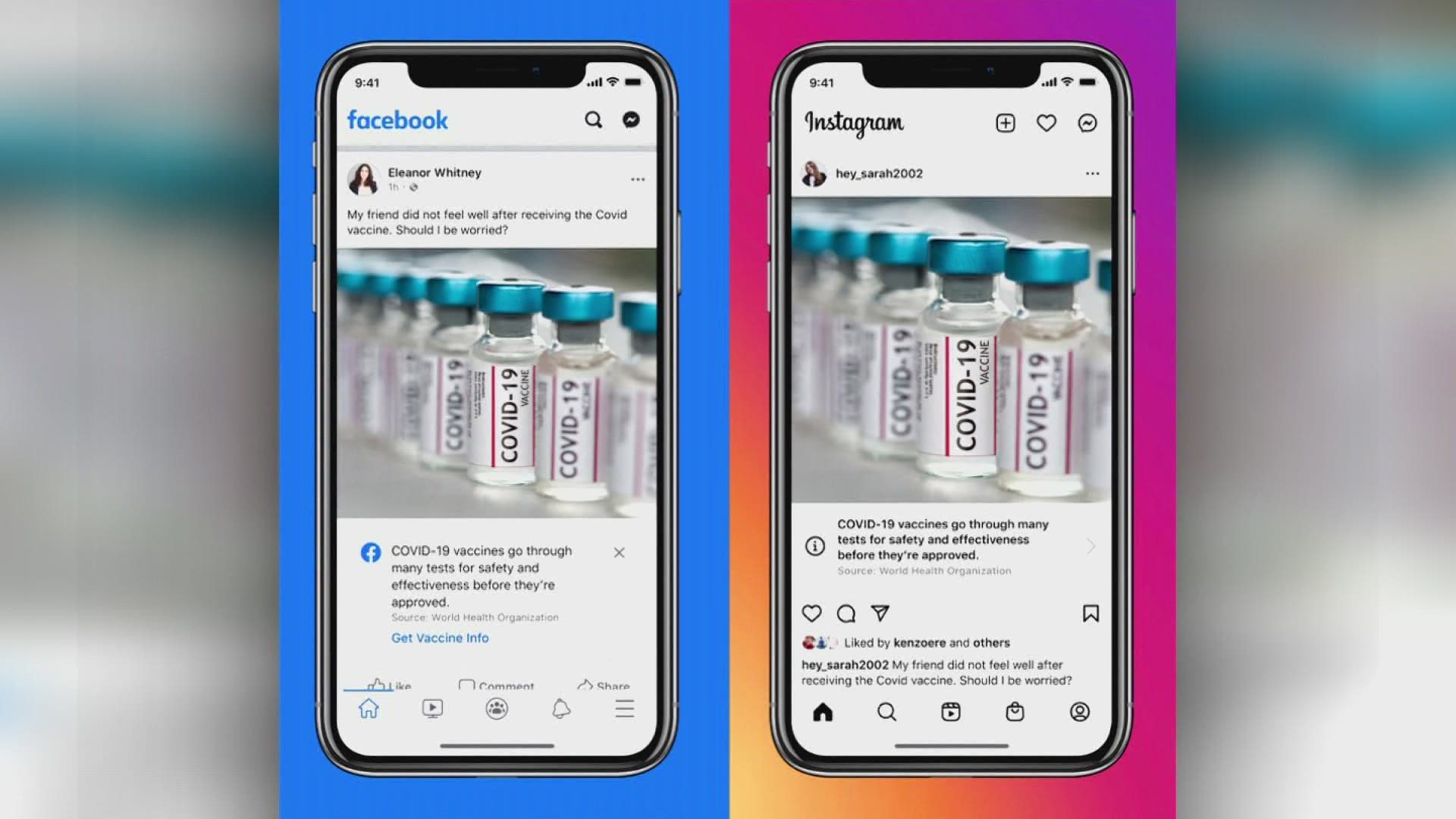SEATTLE — Facebook and Instagram are trying to stop people from sharing misinformation about COVID-19 vaccines, but that is proving to be a difficult task because some posters are finding ways to sow doubt without violating the rules.
“People who are leaders in the anti-vaccine space, people who often promote and share a ton of content, have gotten better at being very suggestive with their message without being explicit, as a way to avoid content moderation,” said Kolina Koltai, a postdoctoral fellow at the University of Washington (UW) Center for an Informed Public.
She started studying vaccine misinformation years before the COVID-19 pandemic and is now tracking deceptive narratives people are spreading online.
“I think Facebook has made huge strides in improving their policies, they've come up with more and more comprehensive policies,” Koltai said.
Facebook just announced it will apply vaccine labels to specific posts about the shots, linking to credible sources like the World Health Organization.
Koltai said some users, though, are directing people to other platforms, where misinformation is allowed. She urges people to not jump to conclusions by just reading headlines.
Several countries paused their use of the AstraZeneca vaccine this week, because of concerns it may cause blood clots in some patients.
“That's tricky, because it's not necessarily misinformation, to say that these countries are deciding to pause the rollout of that vaccine. That's very true stuff. But I think it's understanding that even though they’re pausing that vaccine, it doesn't mean that all vaccines are unsafe,” Koltai said.
She said it's important to keep in mind the approved COVID-19 vaccines in the U.S. have been rigorously tested and are already saving countless lives.
“Misinformation gets its power from when we share it,” she said.
Koltai wrote a guide on how to spot and respond to online misinformation.
The UW Center for an Informed Public is hosting its annual “MisinfoDay” this Thursday.
The event teaches high school students, teachers, and librarians how to identify and combat online misinformation.

